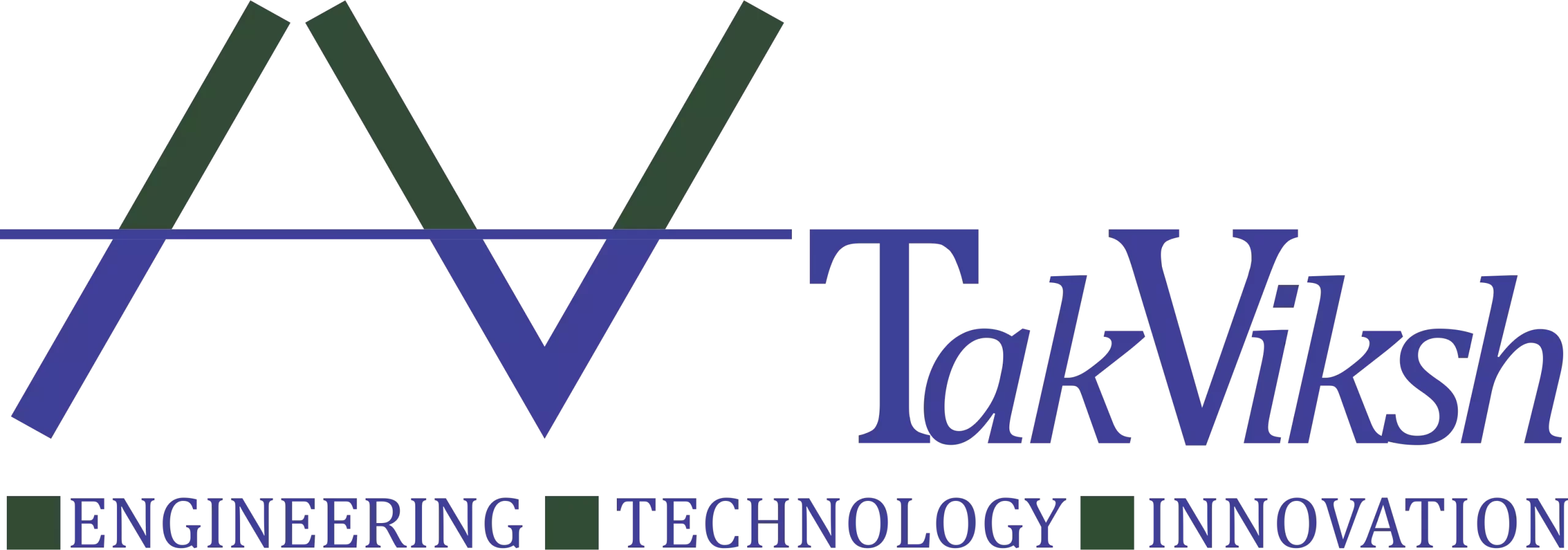While talking about industrial projects, it is also important to discuss timely delivery, cost efficiency, and operational excellence. In addition to timely completion, cost-effectiveness, and operational excellence, excellent construction management and seamless commissioning are the prime drivers for these factors. With the ever-continuing demand for sophisticated, large-scale projects all across India, understanding and implementing robust commissioning and construction management practices holds the key.
It can be a chemical plant, oil refinery, or even a power station, but commissioning and construction management is always the core in ensuring projects are delivered within the timelines, budget, and the standards of safety and performance.
In this detailed guide, we will explore the importance of commissioning and construction management in the execution of a project, its key processes, and why Indian experts, like TakViksh Engineering, are crucial to deliver services of global standard. As a leading consultancy, TakViksh Engineering provides comprehensive services in construction management and commissioning for varied industries in India.
The Importance of Commissioning and Construction Management
The construction management and commissioning phases of any engineering project are two major elements. Construction management ensures the proper execution of a project within the given specifications, time frame, and budget, while commissioning focuses on ensuring the facility operates as designed and is ready for handover to the client. These two go together to ensure that there are no major delays and minimal budget overruns in executing a project.
Both stages involve expert professionals who can handle complex regulatory, technical, and logistical challenges. Proper project management in Vadodara can be a huge factor in the success of projects, especially in oil and gas, petrochemicals, power generation, and large infrastructure developments.
Key Reasons Why Commissioning and Construction Management Are Important:
Safety and Compliance
Commissioning and construction management ensure that a project has stringent safety standards and follows other regulatory requirements. With all these phases being monitored tightly, professionals can identify some possible risks early in the process and hence try to mitigate them at their earliest.
Quality control is always on the agenda in both commissioning and construction. Good commissioning management ensures that all systems and equipment meet the necessary standards for operation before they are delivered to the client. In construction, quality management also comes in during the building stage to ensure every aspect of the construction meets the specification.
Reduction of Delay and Cost Overrun
The efficient running of a commissioning process gives room for the plant or facility to be ready for running, with no unnecessary delay. Effective construction management techniques help keep the process running smoothly during construction stages, keeping to deadlines without costly delays.
Optimizing Project Delivery
It follows that efficient commissioning and construction management result in optimized delivery, less complications in the handover process from construction to operational status, and therefore more effective operational efficiency and quicker return on investment for clients.
Breaking down the commissioning process
Commissioning is the process whereby a new facility, plant, or system is guaranteed to be operating according to the design intent and the specifications before it is handed over to the client. The commissioning process ensures that all systems are tested, verified, and fine-tuned to deliver peak performance. It is an important phase that helps reduce post-handover issues, ensures safety, and optimizes the overall efficiency of the plant or facility.
Key Stages of Commissioning
- Pre-Commissioning
Pre-commissioning is the stage which involves installation of equipment, wiring, piping, and infrastructure. Before commissioning, teams verify that all components are installed and in place. At this stage, initial inspections and checks are done to ensure everything meets the design specifications.
- Functional Testing
Once the physical setup is done, the functional testing stage begins. This involves testing every system and subsystem to check whether they work as anticipated under actual operating conditions. Functional testing can include equipment startup, load testing, system cycling, and environmental checks.
- System Integration Testing
In large-scale projects, several systems must function together seamlessly. System integration testing involves testing the interaction between different components, such as electrical systems, mechanical systems, instrumentation, and control systems. This ensures all systems operate in harmony, without technical issues.
- Performance Testing
Performance testing is the process of running systems at full capacity to check whether they meet operational and safety performance standards. This is usually done in collaboration with the client to ensure that the final facility meets all functional and operational expectations.
- Handover and Documentation
Once commissioning is completed, the facility is handed over to the client. At this stage, detailed documentation is provided, including operational manuals, as-built drawings, and maintenance schedules. These documents ensure that the client can effectively manage and maintain the facility after commissioning.
Key Elements of Effective Construction Management
Construction management is planning, coordination, and execution of construction projects, ensuring that every phase of initiation to completion is conducted efficiently. Effective construction management reduces risks, controls costs, and ensures the project meets regulatory as well as client expectations.
The following are the key elements of effective construction management:
- Planning and Scheduling
A well-planned construction management project would first begin with a proper and workable plan. This is set in place with realistic schedules, timelines, and resources. The managers will ensure that projects flow smoothly and do not get out of budget by following a structured plan.
- Budget and Cost Control
One of the most critical aspects of construction management is budget management. Ensuring that the project stays within its financial limits requires constant monitoring and cost control measures. This involves forecasting costs, identifying potential cost overruns, and adjusting resources as needed to stay on track financially.
- Resource Management
Resource management—materials, labor, and equipment—is essential for the successful execution of a construction project. A good resource management strategy ensures that all materials are available when needed, that labor is properly allocated, and that equipment is in good working condition.
- Quality Assurance and Control
The quality standards should be maintained at the highest level throughout the construction process. This includes inspection and testing of construction materials, compliance with building codes and standards, and quality checks at every stage of the construction process.
- Risk Management
Managing risk involves identifying potential threats to the project, from environmental factors to technical challenges. A risk management plan enables construction managers to mitigate these risks proactively, reducing delays and ensuring project success.
- Coordination and Communication
Effective coordination and communication among all stakeholders—clients, contractors, engineers, and suppliers—are crucial for the smooth execution of a construction project. Clear lines of communication ensure that any challenges or issues are addressed promptly and that every stakeholder is aligned with the project’s objectives.
Why Choose Indian Experts for Global-Standard Services?
India, with its highly skilled and technologically competent workforce, is emerging as a hub for construction management and commissioning services. Companies around the world are increasingly looking for Indian experts to take on their projects. This is because Indian engineering consultancies, such as TakViksh Engineering, have been known to deliver top-class services that meet international standards.
Key Reasons to Select Indian Experts for International-Standard Services:
- Quality Workforce
India has a vast pool of highly skilled engineers, project managers, and construction specialists who can be well versed with the latest technologies and methodologies. Indian professionals possess technical know-how as well as expertise in the handling of complex projects, which makes them ideal for managing globally standard projects.
- Cost Effectiveness
India is a cost-effective destination for companies that wish to execute large-scale projects without compromising on quality. Indian consultants are preferred by businesses all over the world because they can deliver high-quality services at competitive prices.
- Technological Advancements
Indian consultants, especially those in Vadodara, are on the leading edge of implementing new and sophisticated technologies like Building Information Modeling (BIM), automation, and digital project management tools. They make sure that the project is efficiently managed to reduce time and cost without compromising the quality of the work.
- Global Experience
Many Indian engineering consultancies, TakViksh Engineering among others, have international experience in successfully delivering projects across continents. Global experience ensures that international standards are known and applied by Indian specialists for adaptation to different kinds of client requirements.
TakViksh Engineering Commitment Excellence
TakViksh Engineering is a leading consultancy firm based in Vadodara that offers construction management and commissioning services throughout India. It emphasizes project excellence, ensuring that each project, regardless of its scale or complexity, is executed with precision, efficiency, and safety.
TakViksh’s group of expert professionals deals with each phase of commissioning and construction management so that projects get done within time and on budget. Quality and customer satisfaction are TakViksh Engineering’s motto. Thus, this engineering firm is the trusted partner of several industries, such as petrochemicals, power plants, and industrial infrastructure.
Conclusion
Construction and commissioning are two significant activities, which outline the process for an industrial project. Proper construction and commissioning ensure the timely completion of projects within budget and with the desired quality. Collaboration with such experts as TakViksh Engineering allows businesses to tap into the experience, technology, and project management capabilities of India’s premier consultancy firm.
TakViksh Engineering’s excellence will always be pursued in executing any project, regardless of the scale and magnitude, to deliver the maximum output toward long-term success and operational efficiency.







Recent Comments